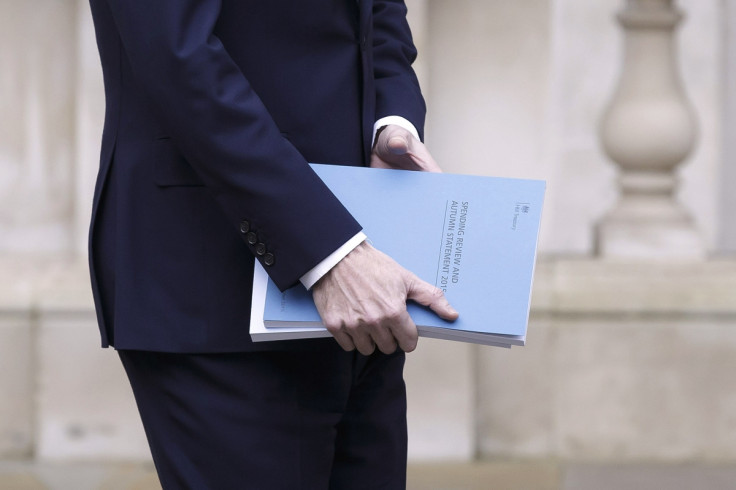Autumn Statement 2015: What experts said about George Osborne's economic plans

George Osborne followed the prime minister at the dispatch box on 25 November to make the first Autumn Statement since the Conservatives won an overall majority at the general election in May.
With an initially expected £20bn in government department cuts in the Spending Review and proposed savings in police spending and from tax credit cuts, the statement was filled with unexpected turns and rabbit out of heads.
John McDonnell was given the chance to respond to the plans set out by Osborne. But the shadow chancellor was not the only one with thoughts on the Autumn Statement and Spending Review. IBTimes UK has gathered comments from experts and analysts on the topics discussed in Osborne's statement.
Sam Bowman, executive director at Adam Smith Institute, on the tax credits U-turn:
This is the right decision on tax credits, and we applaud the chancellor for changing his mind. Tax credits are the right way of doing welfare, encouraging people into work and topping up the incomes of the working poor. But now that they have been protected, we should reform the system by making it less complex and automatic, just as PAYE taxation is run.
Richard Lambert, CEO at the National Landlords Association, on housing:
"The chancellor's political intention is crystal clear; he wants to choke off future investment in private properties to rent.
The exemption for corporate investment makes this effectively an attack on the small private landlords who responded to the housing crisis by putting their own money into providing homes by the party that they put their faith in at the election.
If it's the chancellor's intention to completely eradicate buy to let in the UK then it's a mystery to us why he doesn't just come out and say so.
Chas Roy-Chowdhury, head of taxation at ACCA, on the welfare cap:
The chancellor managed to deliver an Autumn Statement that was filled with good news, but given the lack of wiggle room he has, it is concerning that much of the spending is based on the assumption of consistently strong growth figures, especially given the downgrade in world growth forecasts by the Office for Budget Responsibility.
The breach of the welfare cap is politically embarrassing, but many believe it was a purely political, rather than economic gesture to introduce the cap in the first place. In the long run it will likely lead to very little economic repercussions, and could even give him cover for even deep welfare cuts in the future.
Shilen Shah, bond strategist at Investec, on the Tories' long term economic plan:
Today's Statement showed a government that is maintaining borrowing levels at a reasonable level coupled with the anticipation of strong long-term growth. However, fortunately for George Osborne, this has been made possible by an economic environment of both low inflation and low interest rates. Indeed Labour has been somewhat snookered by Osborne's mix of growth numbers and economic balancing.
By focusing on housebuilding and 400,000 news homes, Osborne has boosted the opportunity for prospective homeowners however conversely, the buy-to-let industry may be dented by another blow in the form of a 3% increase to stamp duty.
Ross Macmillan, research chief at Allpay Limited, on department spending:
Cuts in several departmental day-to-day budgets, including the Department of Energy, the Department of Business Innovation and Skills, the Department of Transport and the Department of Health, places a huge onus on government departments to review the running and operational costs of services.
One area that can achieve costs savings and benefit consumers is digitising payment solutions and outsourcing key elements of the payment process, reducing running costs and staff handling times.
Richard Parkin, head of retirement at Fidelity International, on pensions:
The starting rate of the new Single Tier State Pension was announced and we welcome the more simplified system which has been very complex historically and has caused even the biggest pension nerds to struggle with their calculators. At just over £155, the Single Tier State Pension is undoubtedly a generous deal however, it is important that we recognise that not everybody will get this.
People who, at some point in their working life were "contracted out" of the State Second Pension in return for paying less National Insurance will find that this impacts adversely on their State Pension entitlement.
© Copyright IBTimes 2025. All rights reserved.






















